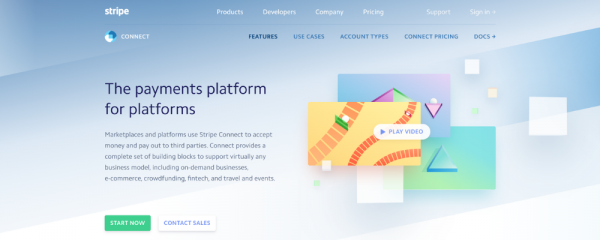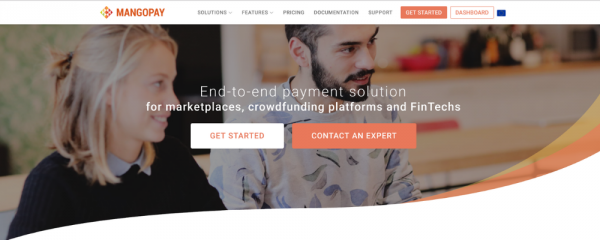Looking for the best marketplace payment solution for your marketplace? After all, finding a reliable and all-in-one payment solution is crucial for building a successful marketplace.
Today, you’ll learn all about the best marketplace payment solutions.
Ready to get started? Let’s dive right in!

Source: Pexels
What is a marketplace payment solution?
A payment solution enables your users to transfer money to each other. Because marketplace payment solutions are heavily regulated and complicated to keep up, it would be expensive to develop your own solution. That’s why a payment solution by a payment service provider is the best alternative for marketplaces. Payment service providers build payment infrastructure, which they then offer to others.
Because marketplaces differ from normal ecommerce or service websites, you need a payment solution that offers marketplace-specific features.
First, your payment solution needs to let buyers send money to sellers. If you use a commission pricing model, you’ll want your payment solution to enable you to take a commission when money is transferred between users. Plus, to protect sellers and buyers, you’ll preferably want to use escrow payments.
And unless your marketplace is completely local, you need a payment solution that operates globally. Your payment solution should be established (so that you don’t end up with unexpected issues like bankruptcies).
But that’s not all. Your payment solution must comply with legal regulations, such as the GDPR. Your marketplace payment solution must also support automated Know Your Customer (KYC) processes for individuals, smooth credit card dispute management, as well as tax reporting.
Now you know what your payment solution should look like. Next, let’s take a closer look at the specific features your payment solution needs to have.

Source: Pexels
What are the most important marketplace payment solution features?
What features should your payment solution have? Here below, you learn exactly how to choose the right payment solution so that you don’t end up in a situation where your payment solution doesn’t offer a crucial feature for your marketplace.
Know your customer processes
Know your customer (KYC) refers to laws that regulate the process of businesses verifying the identity of their clients to assess illegal intentions and their suitability to do business. For this, businesses need to collect personal information, like name, birth date, and address. In some cases, ID verification and other information might be required.
To make this a smooth process for your users, your payment solution must support KYC processes. And because the data is personal and sensitive, it must also keep the data safe.
Security
How secure is your payment solution? For users to trust your marketplace website, you need to offer the highest level of security. Look at things like encryption and vulnerability disclosures to make sure that your payment provider is secure. Fortunately, established payment providers offer an extremely high level of security.
Taxes
When transactions surpass a certain amount, most countries require sellers to declare their taxes. Since there usually are multiple marketplace transactions, this can become a complicated process. That’s why your payment solution should offer tools for sellers to report their taxes. However, before your marketplace has reached a certain size and there are a lot of transactions, taxes aren’t necessarily your first concern (unless you operate in countries with low thresholds).
Escrow
Trust is one of the core pillars of your marketplace. That’s why offering escrow services are more of a rule than an exception.
Buyers will want to know that the service or product they bought is as described. Sellers will want to get paid once they’ve fulfilled their promise.
When you use an escrow service, the payment is delayed until the service or product has been delivered. For example, Airbnb pays out rental fees once the rental has come to an end.
One thing you need to be aware of are disputes.
You see, when you offer credit card payments as a payment method, you might face chargebacks. These are credit card disputes where the owner of a credit card files a dispute after purchasing a service or a product. In many cases, credit card companies take the side of the buyer.
If you offer delayed payments or escrow, you are liable for these disputes. This can incur significant costs for you. In your terms, you can make sellers liable for these chargebacks, but you are ultimately responsible for them.
Support in your target languages
If your main audience isn’t located in an English-speaking country or your operating globally, your payment solution should at least offer localizations of the most important pages, such as the checkout page and order confirmation page. Why? If localized pages aren’t available, you’ll ultimately need to answer more support tickets and possibly miss out on sales.
Fee structure
Obviously, payment solutions come with their own costs and fees. Make sure you know what these fees are and that you compare different payment solutions to make sure you get the functionalities you need and that the fees you pay are competitive compared to other payment solutions.
Commission
If your business is built on a commission model (you take a cut of the payment as a fee for your services as the platform provider), your payment solution needs to offer the option to split a payment multiple ways. This isn’t always the case and that’s why it’s important that you choose to work with a payment service provider that offers marketplace functionalities.
Payment methods
Finally, what payment methods does your payment solution offer? Payment should be as easy as possible for buyers. As credit card is a common way to handle transactions and a payment solution most use when shopping online, you’ll want to choose a payment solution that accepts credit card.
Now you know what features your payment solution needs. But what solutions are there? That’s what we’ll look at next.
Marketplace payment solution alternatives
What marketplace payment solutions are there? Two of the best alternatives are Stripe Connect and Mangopay. Both are established operators with features for marketplaces. Here’s how to know which one you should choose.
Stripe Connect

Stripe is one of the most established and fastest-growing payment solutions. Its product Stripe Connect is built specifically for online marketplaces.
If you choose to use Stripe Connect as your payment solution, you’re in good company. Billion-dollar marketplace platforms like Lyft, Thumbtack, and Instacart use Stripe Connect.
Mangopay (EU)

Mangopay is a European payment solution provider that focuses on marketplace businesses. That’s why it has some powerful features specifically for marketplaces.
Marketplaces like The Food Assembly and Vestiaire Collective use Mangopay as their payment solution.
Stripe Connect and Mangopay features
What features does each of these payment solutions offer? Here’s what you need to know:
Know your customer process
Both Stripe Connect and Mangopay solve Know your customer by allowing marketplace users to fill in their data on the marketplace platform. A user account is created automatically, without users having to take extra steps. Money is then transferred directly to users.
Security
Stripe and Mangopay offer the same level of security as banks. Credit card and transaction information is protected by the highest standards.
Taxes
Stripe offers powerful tax reporting tools for businesses in the US.
Escrow
While having escrow functionalities in place is extremely important for your marketplace, escrow services require special licenses in most jurisdictions. Fortunately, Mangopay offers full escrow functionalities. Stripe offers similar features, where the payout can be held for up to six months.
In terms of chargebacks and dispute handling, Stripe offers a machine learning tool that identifies likely chargebacks, as well as fraudulent transactions (when buyers buy something with the intent to charge back their money).
Support in your target languages
Mangopay and Stripe offer localizations in multiple languages.
Fee structure
Mangopay charges 1.8% and €0.18 per transaction and payouts are free. Stripe Connect charges €2 per active account per month and 0.25% of the volume of the account (in the EU) or $2 and 0.5% in the US. It also charges €0.10/$0.25 per transaction. (see the full pricing list here).
Commission
Both Mangopay and Stripe let you split the payment. In fact, you can even split it multiple ways, which might be needed if buyers buy from several providers or you pay out referral commissions.
Payment methods
Stripe and Mangopay offer the possibility to pay with a credit card. As both of these peer to peer payment service providers are established companies, their checkout processes are smooth and well-designed.
Want to get started right away?
That’s it, now you know what marketplace payment solutions there are and which one to choose. What it comes down to is that your payment solution offers features that your marketplace needs, such as commission payment and escrow.
Want to get started building your marketplace? At Kreezalid, we offer the most reliable solutions with features for marketplaces. You can use both Stripe Connect and, if you’re in the EU, Mangopay as your payment solution. And to make sure Kreezalid is the right marketplace SaaS platform for you, you can now try Kreezalid free of charge for 14 days.
